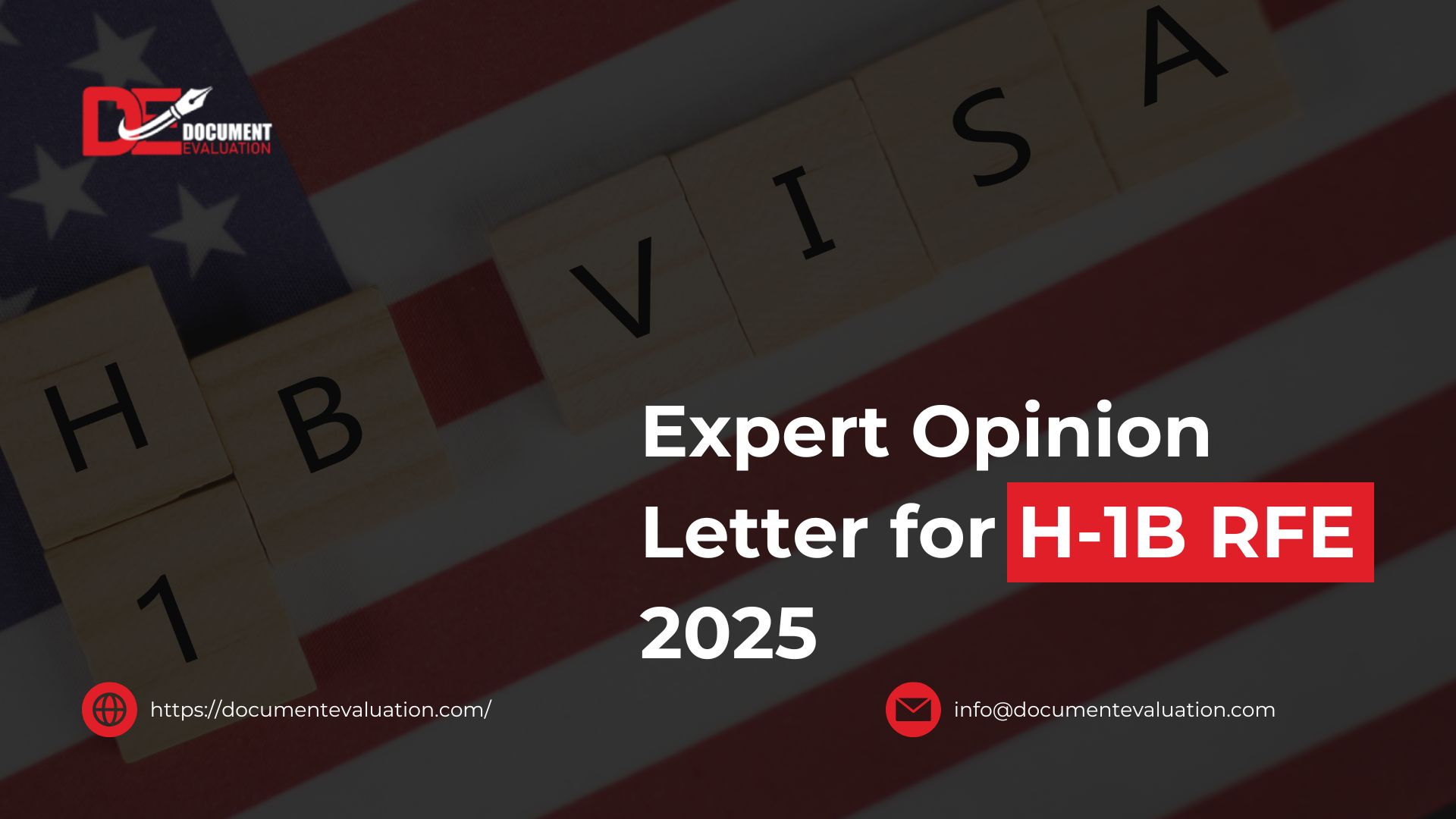H-1B visa is one of the core pathways for the immigration of international talent to the United States to allow employers to recruit talented professionals in specialty occupations. These roles entail specialized skills and experience, which mainly can be obtained by acquiring a bachelor’s degree or equivalent. Apart from stimulating innovation it also helps to consolidate the US economy by filling important skills shortages in sectors such as technology, health care, and engineering.
Nevertheless, the H-1B visa is not easy to obtain. The table demonstrates the greatest difficulties faced in the initial stages of the H-1B visa process. Applicants need to fulfill qualifying requirements set by the United States Citizenship and Immigration Services USCIS. Among standard challenges is the Request for Initial Evidence (RFE), the official notice from USCIS requesting the applicant to provide additional documents to accompany an H-1B petition. An H-1B applicant receives anxiety and a delay when one receives an RFE, but this is not the final number.
In enabling a response to RFEs, professional opinions are likely embodied in writing through expert opinion letters. Such formally prepared documents make it easier to explain matters like education alternatives, competency, and specificity of a position. The knowledge of how best to apply them can tip the scales in your favor or against you especially when USCIS steps up the scrutiny of the H-1B petitions. Document Evaluation offers reliable and comprehensive expert opinion services tailored to H-1B applications
Understanding H-1B RFE
A Request for Initial Evidence is issued when USCIS feels that it cannot decide on the application as it stands. However, it is not a denial but rather a request for more clarification or evidence before USCIS can continue with an application or process.
There are several reasons why an RFE in H-1B may be issued. These include:
- Lack of proof that the job as advertised meets the elements of the specialty occupation.
- Questions relating to the applicant’s work experience, including specific details of working years and educational degrees when the applicant earned a degree outside the United States.
- Concerns about whether the job description aligns with industry standards for a specialty occupation.
- Questions concerning wage rates or where the employer-employee relationship is not well defined.
USCIS will normally make certain that an applicant or petition has indicated how they plan to respond to the RFE, and this expectation is normally accompanied by the time frame of 30, 60, or even 90 days imposed by USCIS when issuing the RFE. Lack of filing a response within the time specified as follows will result in the automatic rejection of the application. Subsequently, an effective response is always welcome so that the application process can continue smoothly.
Understanding Supporting Letters and Their Importance for H1B Visa or H1B RFE
Supporting letters are formal documents prepared by qualified professionals to address specific aspects of your H-1B petition. They provide independent, third-party verification, bolstering your application and response to an RFE. Let’s explore the three main types of supporting letters:
- Expert Opinion Letter: This letter focuses on the beneficiary’s qualifications. It evaluates foreign educational credentials, demonstrating their equivalency to US degrees. Additionally, it can address non-traditional career paths, explaining how the beneficiary’s background equips them for the specific H-1B position.
- Specialty Occupation Letter: This letter delves into the nature of the offered position. It explains why the role qualifies as a “specialty occupation” under H-1B regulations. A strong specialty occupation letter outlines the required tasks, demonstrates the need for a bachelor’s degree (or higher) for successful execution, and provides industry data supporting this requirement.
- Beneficiary Qualification Letter: This letter bridges the gap between the beneficiary’s qualifications and the job description. It details the beneficiary’s work experience, highlighting specific skills and projects directly relevant to the H-1B position. In cases where traditional documentation might be insufficient, this letter provides a comprehensive picture of the beneficiary’s suitability.
What is an Expert Opinion Letter for H-1B?
An Expert Opinion letter is an authentically repared professional and academic authorities opinion provided on aspects of the filed H-1B application. These letters respond to issues that need to be addressed as pointed out by the USCIC and offer third-party confirmation of not only the competence of the applicant but also the uniqueness of the job description.
Expert opinion letters are particularly valuable in cases involving:
- Non-U.S. educational qualifications have to be compared to their counterparts.
- Professions that may not be prototypical of a given disability but require the applicant to prove his or her worth
- Lack of clarity involving tasks and roles, or where establishment of the specialized character of the work is in doubt.
Document Evaluation offers an authoritative perspective, bridging gaps in the documentation and providing USCIS with the clarity needed to adjudicate the application.
Beneficiary Qualifications for H-1B RFE
Having an unclear job description and a lack of clarity of the beneficiary’s qualifications are the reasons for an RFE more often than in any other case. H-1B visa applicants have to prove that they have the appropriate academic education and professional experience to perform the tasks.
This often involves presenting documentation such as:
- Certificates, academic statements with all the courses taken and their grades.
- Assessments of foreign degrees whereby such programs are compared to standards obtainable in the United States.
- Elaborate descriptions of previous working experience that correspond to the position.
Where such documents do not offer sufficient information, expert opinion letters become indispensable. For instance, when a beneficiary has a foreign qualification that USCIS may reject, an expert opinion letter sets out that the qualification is equivalent to the one gotten in the United States. Also, if the beneficiary has gone the non-conventional way in terms of the chosen career direction, the letter may help explain why the decision was made and how it can be useful in the given role.
Specialty Occupation Letters for H-1B RFE
Another component is specialty occupation letters used in responding to the RFE in H-1B visas specify the concept of specialty occupation and these documents explain what the job entails and why it meets these legal requirements.
- A strong specialty occupation letter typically includes:
- An effective job description includes the description of the tasks and how they demand domain expertise.
- Some reasoning as to why a bachelor’s degree (or higher) is needed for the position.
- Data proves that it is normal in the industry for the job to demand such qualifications.
Expert opinion letters support these submissions by supplying a professional assessment of the complexity of the role. They confirm the facts stated in the specialty occupation letter such as claims of duties and responsibility in the specialty occupation, thereby providing independent third-party opinion to support the position’s analysis which supports the specialty occupation of the position.Document Evaluation (documentevaluation.com) offers reliable and comprehensive expert opinion services tailored to H-1B applications
Steps to Respond to an H-1B RFE
Crafting an effective response to an RFE in H-1B requires a systematic approach:
- Carefully Review the RFE: Start by first identifying USCIS concerns and the document they want From the USA and other intended countries. This step is very important so that the response relates to the matters raised so much.
- Gather Supporting Documentation: Assure yourself of all the paperwork including education certificates, employment references, letters, job descriptions, SNn, etc. Make sure all documents make up a coherent and well-structured set of information.
- Obtain Expert Opinion Letters: Hire the services of an experienced person to draft expert opinion letters to deal with educational equivalency, specialty occupation, or work experience.
- Craft a Comprehensive Response: Be precise and concise and include a simple statement that essentially says, how these pieces of evidence meet the USCIS’ concern. Be sure that the organization of the response correlates in some way to the RFE that you are given.
- Submit on Time: As a reminder, one should be very careful not to go a single day beyond the RFE date because FTAs may be automatically denied.
Key Considerations for 2025
Conditions for H-1B applications in 2025 changed and the program became more selective compared to the previous years scrutinized by USCIS. Newer data show an increase in RFEs especially touching on specialty occupation claims and beneficiary qualification.
To overcome these challenges, one has to do adequate research to submit high-quality documents that meet current set standards. Expert opinion letters must now also be able to address USCIS’s higher expectations due to its increased consciousness level by giving elaborate assessments that allow for no equivocation.
The originality of a paper as well as the originality of content presented in all the documentation are also important. Only minor differences can cause delays or direct rejection, which means that all the documents should be reviewed several times. Applicants can be more effective in dealing with the H-1B system if they start with getting expert opinion letters at an early stage of the process.
SUGGESTED READ – Who Offers the Best Credential Evaluation Services?
Conclusion
The H-1B visa program is still worth it in that it offers a chance the provide skilled workers from other countries in the United States. However, the process of applying to obtain this visa is problematic and worsened by the fact that an RFE can be issued during the H-1B visa. In general, working as an RFE could be rather intimidating but as you already know, this will allow you to fortify your argument and suffice the concerns of the USCIS agency.
Expert opinion letters remain an important part of the process as they provide a professional opinion that a beneficiary meets the required requirements and essential facts supporting a specialty occupation classification. This way, we produce a well-thought response from the potential borrower and involve only qualified experts to raise the chances of approval to the maximum level.
Preparation for the application process should be done early enough and should also follow USCIS standards to the letter. Consulting services such as Document Evaluation provide a level of personal service which means that those seeking an RFE in H-1B visa understand how to answer Requests for Initial Evidence and realize their immigration plan in 2025.
Frequently Asked Questions!
You need one when your degree is foreign, your background doesn’t match your job title neatly, or USCIS wants more explanation about your qualifications.
It connects your skills and work experience directly to the job duties, helping USCIS see that you’re prepared for the role.
They clear up confusion by giving USCIS a trusted expert’s explanation, which makes it easier for them to understand your background and the job’s requirements.
Start by reading it slowly and carefully. Understanding exactly what USCIS is asking for makes your response so much easier to prepare.
That’s very normal. Expert letters help fill the gaps by explaining things your employer may not know to highlight.
You’ll need to act quickly. Many expert evaluation services offer fast turnaround specifically for tight deadlines.
USCIS will review everything again and make a final decision. If your response is strong, you’re back on track.



